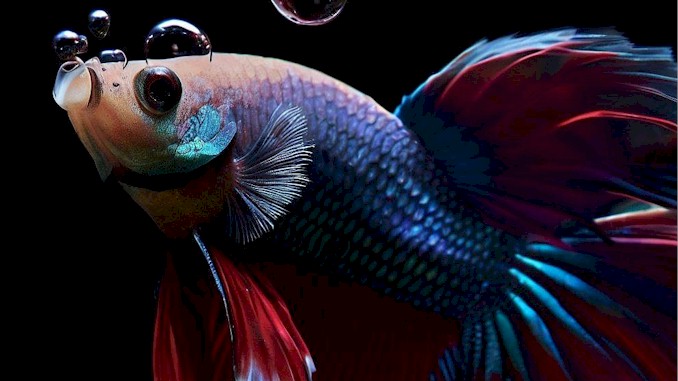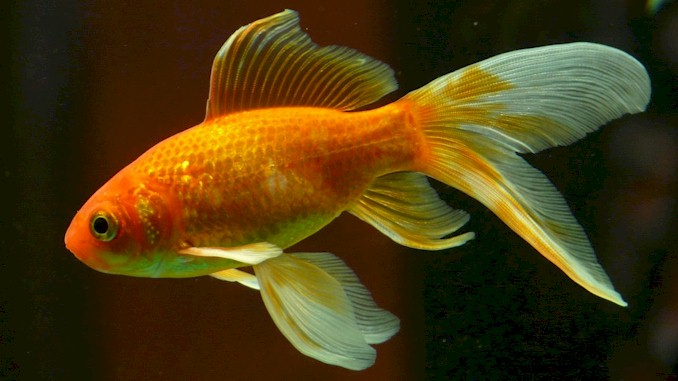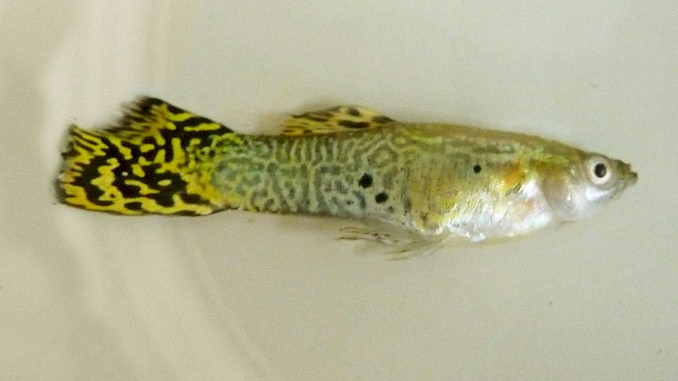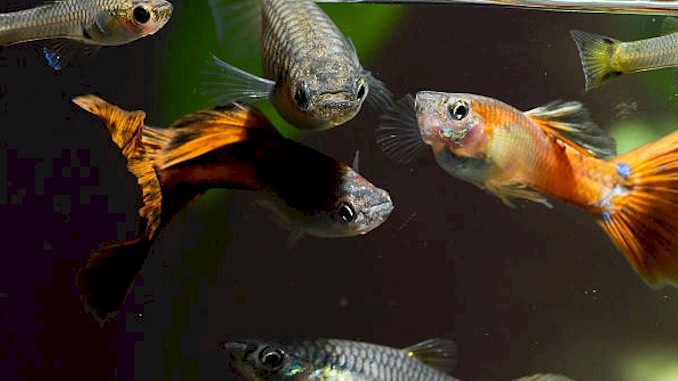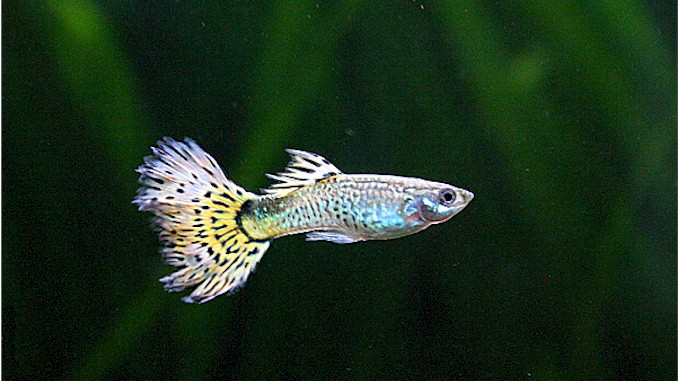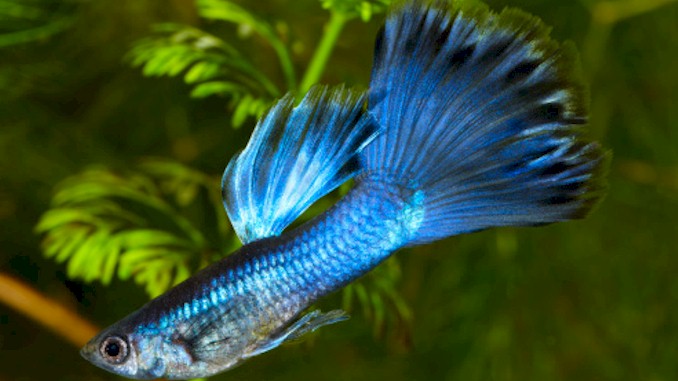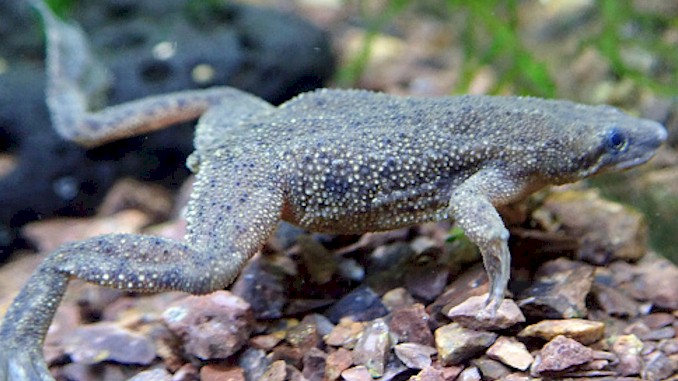Help! My Betta Fish Stopped Eating: A Guide to Solving the Problem
I recall feeling quite anxious when I noticed that my betta fish had gone without food for a few days. This is frequently a telling sign that your fish’s health, happiness, or well-being may be in trouble. If you are a betta fish owner like me, you might have faced a similar situation. There is good news, though! Drawing from my personal experience of tackling this problem, I am happy to share what I’ve learned over the years. I am confident that I can help you identify the typical reasons for your betta fish’s loss of appetite and offer practical solutions to address them. This article is all about it.
Betta fish may stop eating due to various factors, such as water quality, temperature, stress, disease, parasites, boredom, or overfeeding. To address the issue, the owner should first check the water parameters and make sure they are suitable for betta fish. Then, the owner should observe the fish for any signs of illness or injury and treat them accordingly. The owner should also provide the fish with a varied diet and enough stimulation to prevent boredom. Finally, the owner should avoid overfeeding the fish and follow a regular feeding schedule.
Now you know that there are a few reasons causes your bettas are not eating. Next, I’ll share with you the needed information and knowledge of how to deal with the situation. So, reading on to get it:
Why do betta fish stop eating and how to help them?
Betta fish are beautiful and lively pets that can brighten up any aquarium. However, sometimes they may lose their appetite and refuse to eat. This can be a sign of a serious problem that needs your attention. In this section, I will explain some of the most common reasons why betta fish stop eating and how to help them.
Poor water quality
One of the most common reasons why betta fish stop eating is because the water conditions are poor quality in some way. Since we often keep betta fish in a smaller fish tank, it does not take very long for ammonia, nitrite, nitrate, and other noxious chemicals to build up to stressful or even dangerous levels. These chemicals can irritate the betta’s gills, skin, and eyes, and make them feel sick and uncomfortable. They can also lower the betta’s immune system and make them more prone to infections and diseases.
To help your betta fish, you need to check and improve the water quality regularly. You should use a liquid-based test kit to measure the levels of ammonia, nitrite, nitrate, pH, hardness, and temperature in your tank. You should also do regular water changes of 25% to 50% every week or two, depending on the size of your tank and the number of fish you have. You should also use a filter that is suitable for your tank size and cycle it properly before adding your betta fish. A filter will help remove some of the waste and toxins from the water and provide beneficial bacteria that will break down ammonia and nitrite into less harmful nitrate.
Poor quality food
Another reason why betta fish may stop eating is because they are not getting the right kind of food or the food is old and stale2. Betta fish are carnivorous fish that need a high-protein diet to stay healthy and active. They also rely on their sense of smell to find their food and if it does not smell good, they may not be interested in it.
To help your betta fish, you should feed them a fresh pelleted diet that is specially formulated for betta fish. You should also replace the food at least every six months or sooner if it starts to smell bad or lose its color. You should also supplement their diet with some live, frozen, or freeze-dried foods such as bloodworms, brine shrimp, daphnia, or mosquito larvae. These foods will provide more variety and nutrition for your betta fish and stimulate their natural hunting instincts.
You should also avoid overfeeding your betta fish as this can cause digestive problems and water quality issues. You should feed your betta fish twice a day but only a small amount each time: about as many pellets as would equal the size of their eyeball2. Any uneaten food that remains on the bottom of the aquarium should be removed with a net or gravel vacuum.
Stress
Stress is another factor that can affect your betta fish’s appetite. Betta fish are very sensitive to their environment and any changes or disturbances can cause them stress. Some of the common sources of stress for betta fish are:
- Loud noises or vibrations
- Bright lights or sudden changes in lighting
- Moving or rearranging the tank or decorations
- Adding or removing other fish or tank mates
- Aggressive or incompatible tank mates
- Lack of hiding places or plants
- Lack of stimulation or boredom
To help your betta fish, you should try to minimize their stress as much as possible. You should keep your tank in a quiet and stable location away from direct sunlight, windows, doors, heaters, air conditioners, speakers, or TVs. You should also avoid moving or changing the tank too often unless necessary. You should also provide your betta fish with enough space (at least 5 gallons) and some plants, rocks, caves, or other decorations that will give them shelter and security. You should also choose their tank mates carefully and avoid any aggressive or fin-nipping fish that will harass your betta fish. You should also provide your betta fish with some enrichment activities such as floating ping pong balls, mirrors (for short periods only), live foods, or different foods to keep them entertained.
Overfeeding
Overfeeding is another common mistake that can cause your betta fish to stop eating. Betta fish have small stomachs and can only eat a limited amount of food at a time. If you feed them too much or too often, they can become bloated and constipated. This can make them feel uncomfortable and lose their appetite1. Overfeeding can also lead to water quality issues, as the excess food will rot and produce ammonia and nitrite that can harm your betta fish.
To help your betta fish, you should feed them only as much as they can eat in one sitting, and remove any uneaten food from the tank afterwards. You should also avoid feeding your betta fish more than twice a day, and give them a variety of foods that are suitable for their carnivorous diet. You should also fast your betta fish once every couple of weeks to give their digestive system a break and prevent overfeeding.
Inappropriate temperature
Betta fish are tropical fish that need warm water to thrive. They prefer a water temperature of around 78°F to 80°F. If the water temperature is too low or too high, it can affect your betta fish’s metabolism and appetite. Low water temperature can slow down your betta fish’s digestion and make them less active and hungry. High water temperature can speed up your betta fish’s metabolism and make them more prone to infections and diseases.
To help your betta fish, you should use a heater and a thermometer to maintain a stable and optimal water temperature for your betta fish. You should also avoid placing your tank near windows, heaters, air conditioners, or other sources of temperature fluctuations. You should also check the water temperature regularly and adjust it if needed.
Illness and disease
Betta fish can get sick or infected by various pathogens such as bacteria, fungi, parasites, or viruses. These can cause symptoms such as lethargy, loss of color, clamped fins, bloating, white spots, red streaks, or open wounds on your betta fish. These symptoms can make your betta fish feel unwell and lose their appetite.
To help your betta fish, you should diagnose the cause of their illness and treat them accordingly. You should use a quarantine tank to isolate your sick betta fish from other tank mates and prevent the spread of infection. You should also use medications or natural remedies that are appropriate for the type of disease your betta fish has. You should also keep the water quality high and provide your betta fish with stress-free conditions to help them recover.
How to get betta fish to eat?
If you have tried to address the possible causes of your betta fish not eating, such as poor water quality, poor quality food, stress, inappropriate temperature, or illness and disease, and your betta fish still refuses to eat, you may need to try some other methods to entice them to eat. Here are some tips on how to get your betta fish to eat:
- Use a feeding stick. A feeding stick is a tool that you can use to offer food to your betta fish directly. You can place half a bloodworm or a pellet on the tip of the stick and hold it near the water surface. This way, you can attract your betta fish’s attention and make them associate the stick with food. You can also train your betta fish to jump for the food by moving the stick slightly above the water. This can stimulate your betta fish’s natural hunting instincts and make them more interested in eating.
- Use different types of food. If your betta fish is bored or picky with their food, you can try to vary their diet with different types of food. You can use live, frozen, or freeze-dried foods such as bloodworms, brine shrimp, daphnia, or mosquito larvae. These foods are more nutritious and appealing for your betta fish than pellets or flakes. You can also use gel food that is specially formulated for betta fish and contains natural ingredients. You can change up the type of food as often as you like, but try to feed your betta fish at least one type of food that is different from what you normally feed them at least once a week.
- Use slow-sinking pellets. If your betta fish does not recognize pellets or flakes as food, you can try to use slow-sinking pellets that will stay in the water column longer and give your betta fish more time to notice them. You can also soak the pellets before feeding them to make them softer and easier to digest. You should aim to feed your betta fish pellets that are about the size of their eyeball and feed them only as much as they can eat in one sitting. You should also remove any uneaten pellets from the tank afterwards.
- Fast your betta fish. Sometimes, your betta fish may not eat because they are overfed or constipated. In this case, you can fast your betta fish for one or two days to give their digestive system a break and clear any blockages. Fasting your betta fish can also make them more hungry and willing to eat afterwards. However, you should not fast your betta fish for more than two days as this can cause starvation and health problems.
How long can a betta fish go without eating?
Betta fish are beautiful and lively pets that can brighten up any aquarium. However, sometimes you may need to leave them alone for a few days or even weeks due to travel or other reasons. In this case, you may wonder how long can a betta fish go without eating and what you can do to ensure their survival and well-being.
The answer is that betta fish can survive without food for quite a long time, depending on various factors such as their health, tank conditions, and water temperature. In general, most betta fish can go without food for 7 to 10 days, but some can last up to 14 days or even longer. However, this does not mean that you should starve your betta fish on purpose or neglect their feeding schedule. Going without food for too long can cause stress, weakness, illness, and even death for your betta fish.
Therefore, if you are planning to leave your betta fish alone for more than 3 or 4 days, you should take some precautions to ensure their safety and comfort. Here are some tips on how to prepare your betta fish tank before you go on vacation:
Clean the tank and perform a water change
Before you leave, you should make sure that your betta fish tank is clean and free of any waste or debris that could pollute the water and harm your betta fish. You should also perform a water change of 25% to 50% to remove any nitrates or other toxins from the water. This will help maintain a stable and healthy water quality for your betta fish while you are away.
Check the filter and heater
You should also check that your filter and heater are working properly and that they are set to the optimal settings for your betta fish. The filter will help keep the water clean and oxygenated, while the heater will keep the water temperature stable and comfortable for your betta fish. You should aim for a water temperature of around 78°F to 80°F for your betta fish4. You should also avoid placing your tank near windows, heaters, air conditioners, or other sources of temperature fluctuations.
Use an automatic feeder or feeding blocks
If you are going to be away for more than 3 or 4 days, you should consider using an automatic feeder or feeding blocks to provide food for your betta fish while you are away. An automatic feeder is a device that dispenses food at regular intervals according to your settings. A feeding block is a solid block of food that dissolves slowly in the water and releases food over time. Both options can help prevent your betta fish from starving or overeating while you are away.
However, you should be careful when choosing an automatic feeder or feeding block, as some of them may not work very well or may cause water quality issues. You should read the reviews and instructions carefully before buying one of these products. You should also test them before you leave to make sure they work properly and do not dispense too much or too little food.
Ask someone to check on your betta fish
If possible, you should ask a friend, family member, neighbor, or pet sitter to check on your betta fish every few days while you are away. This way, they can monitor the water quality, temperature, filter, heater, feeder, feeding block, and the health and behavior of your betta fish. They can also perform emergency actions if something goes wrong with your tank or your betta fish. They can also feed your betta fish some live or frozen foods such as bloodworms, brine shrimp, daphnia, or mosquito larvae to provide some variety and nutrition for your betta fish.
Why is betta fish spitting out food?
Betta fish are carnivorous fish that need a high-protein diet to stay healthy and active. They also rely on their sense of smell to find their food and if it does not smell good, they may not be interested in it. However, sometimes you may notice that your betta fish is spitting out food instead of eating it. This can be a sign of a problem that needs your attention. In this section, I will explain some of the most common reasons why betta fish spit out food and how to fix them.
1. Overfeeding
One of the most common reasons why betta fish may spit out their food is because of overfeeding. Betta fish have small stomachs and can only eat a small amount of food at once. They may spit out the excess food when overfed, as their stomach cannot handle it. Overfeeding can also cause digestive problems and water quality issues for your betta fish.
To fix this problem, you should feed your betta fish only as much as they can eat in one sitting, and remove any uneaten food from the tank afterwards. You should also avoid feeding your betta fish more than twice a day, and give them a variety of foods that are suitable for their carnivorous diet. You should also fast your betta fish once every couple of weeks to give their digestive system a break and prevent overfeeding.
2. Digestive issues
Another reason why betta fish may spit out their food is because of digestive issues. This can include anything from a problem with the teeth or gills to a lack of stomach acid. This could also be due to a lack of nutrients in their diet, or a problem with their intestines. Digestive issues can make your betta fish feel unwell and lose their appetite.
To fix this problem, you should check your betta fish for any signs of illness or injury, such as lethargy, loss of color, clamped fins, bloating, white spots, red streaks, or open wounds. You should also diagnose the cause of their digestive issue and treat them accordingly. You should use a quarantine tank to isolate your sick betta fish from other tank mates and prevent the spread of infection. You should also use medications or natural remedies that are appropriate for the type of digestive issue your betta fish has. You should also keep the water quality high and provide your betta fish with stress-free conditions to help them recover.
3. Young betta
If you have a young betta fish, it may spit out its food because it is not used to eating pellets or flakes. Young bettas are usually fed live foods by their breeders, as these are more nutritious and appealing for them. Pellets or flakes may be too large or too hard for their mouths and they may not recognize them as food.
To fix this problem, you should try to introduce pellets or flakes gradually to your young betta fish. You can soak the pellets before feeding them to make them softer and easier to digest. You can also mix them with some live foods such as bloodworms, brine shrimp, daphnia, or mosquito larvae to make them more attractive for your young betta fish. You can also use gel food that is specially formulated for betta fish and contains natural ingredients.
4. Presence of parasite
Another reason why betta fish may spit out their food is because of the presence of parasite in their stomach or mouth. Parasites such as worms, flukes, or protozoa can infect your betta fish through contaminated water or food. They can cause symptoms such as weight loss, bloating, white stringy feces, or holes in the mouth. Parasites can interfere with your betta fish’s digestion and appetite and make them spit out their food.
To fix this problem, you should diagnose the type of parasite that is infecting your betta fish and treat them accordingly. You should use a quarantine tank to isolate your infected betta fish from other tank mates and prevent the spread of parasite. You should also use medications or natural remedies that are effective against the type of parasite your betta fish has. You should also keep the water quality high and provide your betta fish with stress-free conditions to help them recover.
5. Injury or sickness
Another reason why betta fish may spit out their food is because of injury or sickness. Betta fish can get injured by sharp objects in the tank, aggressive tank mates, or improper handling. They can also get sick by various pathogens such as bacteria, fungi, viruses, or parasites.
Injury or sickness can cause pain, inflammation, infection, or ulceration in your betta fish’s mouth or stomach. This can make them unable to eat or spit out their food.
To fix this problem, you should check your betta fish for any signs of injury or sickness, such as lethargy, loss of color, clamped fins, bloating, white spots, red streaks, or open wounds. You should also diagnose the cause of their injury or sickness and treat them accordingly. You should use a quarantine tank to isolate your injured or sick betta fish from other tank mates and prevent the spread of infection. You should also use medications or natural remedies that are appropriate for the type of injury or sickness your betta fish has. You should also keep the water quality high and provide your betta fish with stress-free conditions to help them recover.
Why is betta fish not eating and making bubbles?
Betta fish are known for their unique behavior of making bubbles at the surface of the water. These bubbles are part of their bubble nests, which are clusters of bubbles that they create for breeding purposes. However, sometimes you may notice that your betta fish is not eating and making bubbles instead. This can be a sign of a problem that needs your attention. In this section, I will explain some of the possible reasons why your betta fish is not eating and making bubbles and how to fix them.
Stress
One of the possible reasons why your betta fish is not eating and making bubbles is stress. Stress can be caused by various factors, such as poor water quality, overstocking, aggressive tank mates, loud noises, bright lights, or sudden changes in the environment. When a betta fish is stressed, it may stop eating and may also display other signs such as lethargy, clamped fins, and color changes. Stress can also trigger the bubble-making behavior as a way to cope with the situation or to prepare for spawning.
To fix this problem, you should try to identify and eliminate the source of stress for your betta fish. You should check and improve the water quality regularly by using a test kit and performing water changes. You should also provide your betta fish with enough space (at least 5 gallons) and some plants, rocks, caves, or other decorations that will give them shelter and security. You should also choose their tank mates carefully and avoid any aggressive or fin-nipping fish that will harass your betta fish. You should also keep your tank in a quiet and stable location away from direct sunlight, windows, doors, heaters, air conditioners, speakers, or TVs. You should also avoid moving or changing the tank too often unless necessary.
Illness or disease
Another possible reason why your betta fish is not eating and making bubbles is illness or disease. Betta fish can get sick or infected by various pathogens such as bacteria, fungi, parasites, or viruses. These can cause symptoms such as weight loss, bloating, white stringy feces, or holes in the mouth. Illness or disease can affect your betta fish’s digestion and appetite and make them spit out their food or stop eating altogether. Illness or disease can also stimulate the bubble-making behavior as a way to protect their eggs and fry from infection.
To fix this problem, you should diagnose the cause of their illness or disease and treat them accordingly. You should use a quarantine tank to isolate your sick betta fish from other tank mates and prevent the spread of infection. You should also use medications or natural remedies that are effective against the type of illness or disease your betta fish has. You should also keep the water quality high and provide your betta fish with stress-free conditions to help them recover.
Overfeeding
Another possible reason why your betta fish is not eating and making bubbles is overfeeding. Betta fish have small stomachs and can only eat a small amount of food at once. If you feed them too much or too often, they can become bloated and constipated. This can make them feel uncomfortable and lose their appetite. Overfeeding can also lead to water quality issues, as the excess food will rot and produce ammonia and nitrite that can harm your betta fish.
To fix this problem, you should feed your betta fish only as much as they can eat in one sitting, and remove any uneaten food from the tank afterwards. You should also avoid feeding your betta fish more than twice a day, and give them a variety of foods that are suitable for their carnivorous diet. You should also fast your betta fish once every couple of weeks to give their digestive system a break and prevent overfeeding.
Reproduction purposes
The last possible reason why your betta fish is not eating and making bubbles is reproduction purposes. This is the most common and natural reason for their bubble-making behavior. Male betta fish create bubble nests as a sign of their courtship ritual to attract and impress potential mates and as a way to prepare for spawning. A well-constructed and maintained nest is often seen as a sign of a healthy and strong male, making him more attractive to females. The bubble nests visually display the male’s ability to create a secure and suitable environment for the eggs and fry.
To fix this problem, you should understand that this is a normal behavior for male betta fish and not something to worry about. However, if you do not want your betta fish to breed, you should avoid keeping male and female betta fish together in the same tank. You should also provide your male betta fish with enough stimulation and enrichment activities to keep them entertained and prevent boredom. You can also try to reduce the bubble-making behavior by changing the water level or the water flow in the tank. However, you should not try to remove or destroy the bubble nest, as this can stress or anger your betta fish.
Conclusion: How to prevent appetite loss in betta fish and enjoy their company
Betta fish are wonderful pets that can bring joy and beauty to any aquarium. However, sometimes they may lose their appetite and stop eating for various reasons. This can be a sign of a problem that needs your attention and care. In this article, I have explained some of the most common reasons why betta fish may not eat and how to fix them. These include:
- Stress
- Illness or disease
- Overfeeding
- Reproduction purposes
By understanding these reasons and taking the appropriate actions, you can prevent appetite loss in your betta fish and ensure their health and happiness. You can also enjoy their company and watch them display their amazing colors and behaviors.
Some of the tips to prevent appetite loss in your betta fish are:
- Keep the water quality high by using a test kit and performing water changes regularly
- Provide your betta fish with enough space (at least 5 gallons) and some plants, rocks, caves, or other decorations that will give them shelter and security
- Choose their tank mates carefully and avoid any aggressive or fin-nipping fish that will harass your betta fish
- Keep your tank in a quiet and stable location away from direct sunlight, windows, doors, heaters, air conditioners, speakers, or TVs
- Avoid moving or changing the tank too often unless necessary
- Feed your betta fish only as much as they can eat in one sitting, and remove any uneaten food from the tank afterwards
- Avoid feeding your betta fish more than twice a day, and give them a variety of foods that are suitable for their carnivorous diet
- Fast your betta fish once every couple of weeks to give their digestive system a break and prevent overfeeding
- Check your betta fish for any signs of illness or injury, such as lethargy, loss of color, clamped fins, bloating, white spots, red streaks, or open wounds
- Diagnose the cause of their illness or injury and treat them accordingly
- Use a quarantine tank to isolate your sick or injured betta fish from other tank mates and prevent the spread of infection
- Use medications or natural remedies that are effective against the type of illness or injury your betta fish has
- Provide your betta fish with stress-free conditions to help them recover
- Understand that bubble-making is a normal behavior for male betta fish and not something to worry about
- Avoid keeping male and female betta fish together in the same tank if you do not want them to breed
- Provide your male betta fish with enough stimulation and enrichment activities to keep them entertained and prevent boredom
- Try to reduce the bubble-making behavior by changing the water level or the water flow in the tank
- Do not try to remove or destroy the bubble nest, as this can stress or anger your betta fish
By following these tips, you can prevent appetite loss in your betta fish and enjoy their company for a long time. Betta fish are amazing creatures that deserve our love and care. I hope this article has helped you understand why your betta fish may not eat and how to fix it. Thank you for reading!

